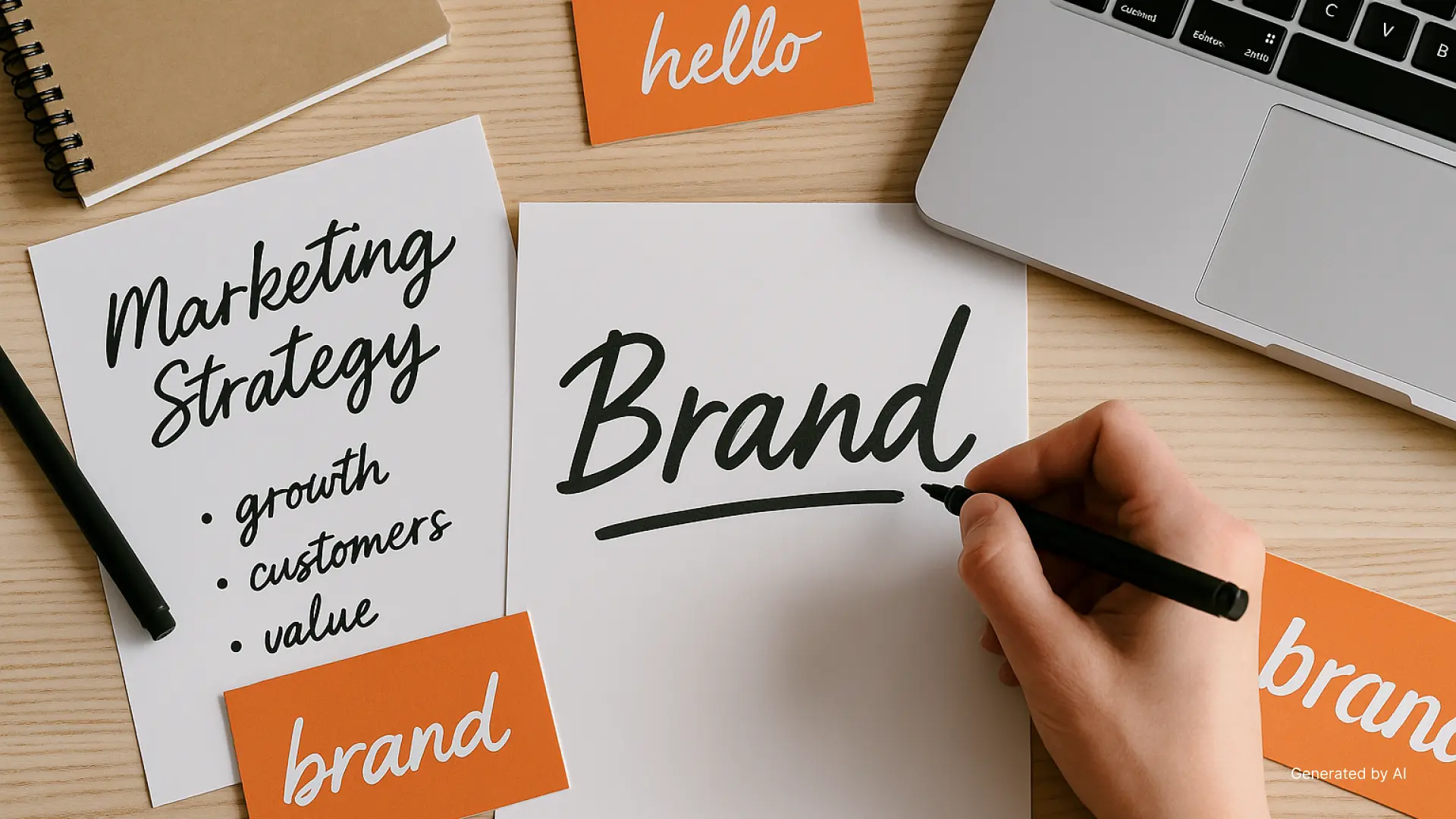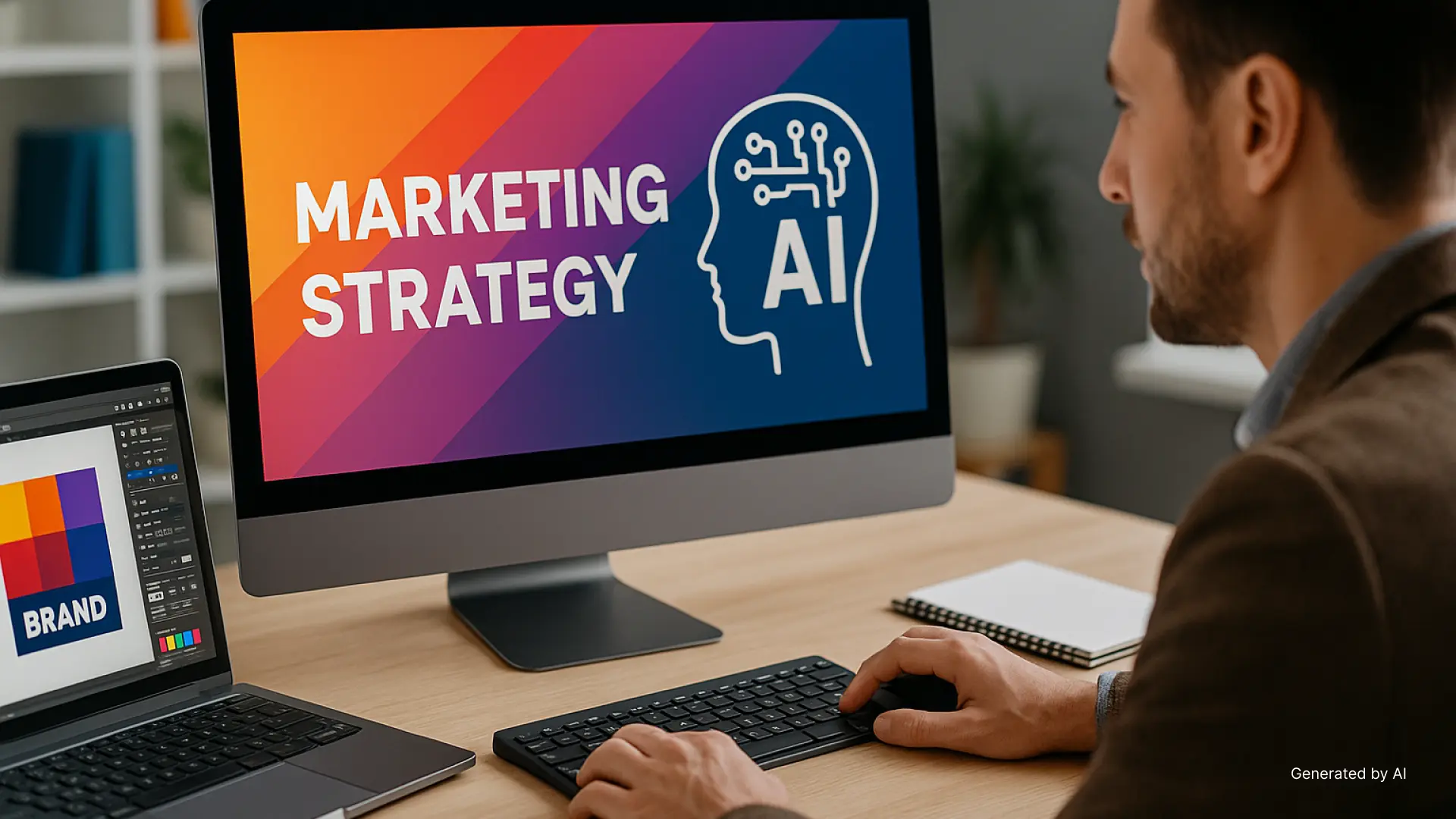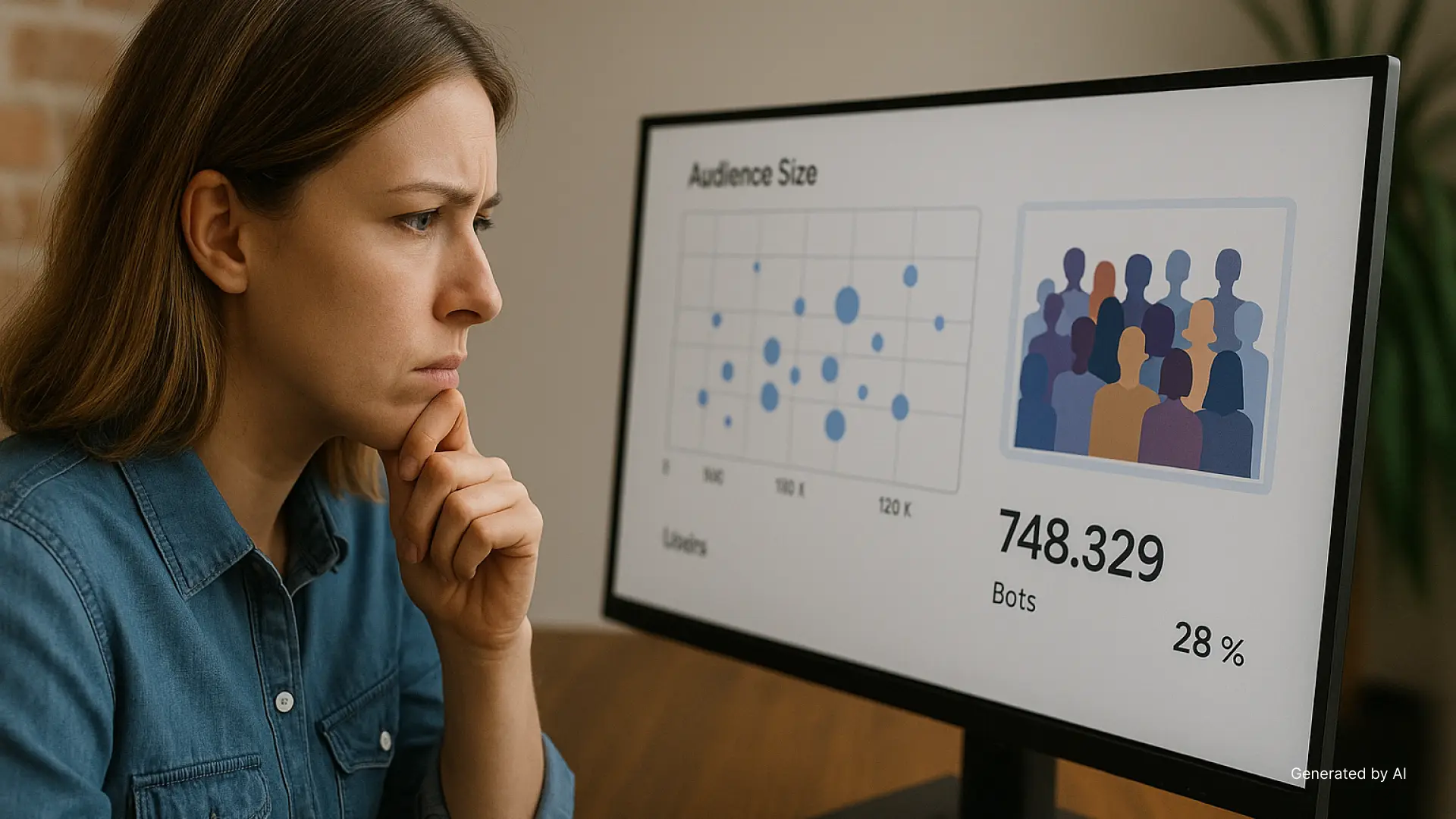Google AI-Powered Ad Tools Unveiled at Marketing Live 2025
Introduction: The AI Revolution in Digital Advertising
Google Marketing Live (GML) 2025 marked a pivotal moment in the evolution of digital advertising, serving as a definitive declaration that the future of marketing, powered by artificial intelligence, is not merely on the horizon but is firmly established in the present. The event was characterized by an overwhelming focus on AI, with presenters unveiling over 30 new, almost exclusively AI-driven tools and features. This extensive rollout signifies a profound transformation in how marketers approach the creation, serving, and measurement of advertising campaigns.
Google’s strategic vision, articulated throughout GML 2025, centers on reimagining advertising. The objective is to transition from traditional ads that interrupt the user experience to Google AI-powered ad tools that facilitate discovery, seamlessly integrating commercial intent into the natural flow of user journeys. This approach aims to make ads helpful, relevant, and a natural extension of a user’s information-seeking process. For instance, a user searching for tips on flying with small dogs might organically encounter an ad for dog carriers, or an AI Mode search for a rug to complement a light gray couch could lead to a panel of relevant product listings.
This transformation is not incremental; Google executives have described it as a “seismic shift,” even more significant than the mobile revolution, fundamentally reshaping consumer search behavior and the dynamics of business-to-consumer interaction. The inherent promise of these advanced AI advertising tools lies in their capacity to elevate campaign performance, maximize return on investment (ROI), and simplify complex marketing tasks, thereby democratizing access to sophisticated capabilities for businesses of all scales. This report will delve into the groundbreaking announcements from Google Marketing Live 2025, examining how Google’s latest AI innovations are redefining campaign management, creative development, and measurement. It will explore the far-reaching implications for Pay-Per-Click (PPC), Search Engine Optimization (SEO), content marketing, and social media marketing, while also addressing the critical challenges and ethical considerations inherent in this AI-first world.
A deeper examination of the announcements reveals that the overwhelming emphasis on AI is not merely about introducing new features; it represents a strategic pivot towards AI as the core operating system for Google Ads. The sheer volume of new tools and the strong, almost existential language used by Google (“seismic shift,” “reimagining the future”) suggest a foundational change where AI is no longer an auxiliary component but the central intelligence driving all facets of the advertising ecosystem. This implies that success in this evolving landscape will require marketers to shift their fundamental approach from merely considering how to use AI to understanding how to operate within an AI-first advertising environment, placing a premium on data quality and a nuanced understanding of AI’s capabilities over traditional manual optimization.
Google Marketing Live 2025: An AI-First Vision Unveiled
The central theme of Google Marketing Live 2025 was the pervasive integration of AI across all advertising functions. The event featured eight presenters who collectively unveiled over 30 new tools and features, almost all of which were powered by AI. These innovations are meticulously designed to support marketers through every stage of the advertising lifecycle, from initial ad creation to serving and comprehensive measurement.
Google’s overarching objective, as repeatedly emphasized, is to create “ads that don’t interrupt but help your customers discover you”. This goal underscores a significant push for AI-powered discovery, where the system aims to convert non-commercial user intent into relevant commercial opportunities. This means ads are intended to appear as natural, helpful “next actions” within conversational search experiences, rather than disruptive intrusions. For example, if a user queries “how to bring small dogs on flights,” the AI might infer commercial intent and display an ad for dog carriers alongside helpful tips. Similarly, in Google Search’s newly released AI Mode, a user searching for a rug to complement a specific couch might be presented with a panel of relevant images and product listings, demonstrating AI’s ability to pull commercial intent from educational queries.
This strategic direction, moving from “interruption” to “discovery” advertising, powered by advanced AI, signals a profound integration of paid content into the user’s natural information-seeking journey. This integration blurs the traditional distinctions between organic content and paid promotion. The explicit goal of making ads a “natural next action” within search experiences, coupled with AI’s ability to infer commercial intent from seemingly non-commercial queries, means that ads are now embedded directly within the user’s discovery process, not merely appended to it. This necessitates a fundamental re-evaluation of ad copy and targeting strategies, shifting the focus beyond mere keywords to a deeper understanding of user intent and contextual relevance, thereby demanding a more sophisticated, content-driven approach to advertising.
Core Google AI-Powered Ad Tools and Innovations
The Power Pack: Supercharging Campaign Performance
At Google Marketing Live 2025, Google introduced the “Power Pack,” positioning it as the next generation of Google AI-powered ad tools designed for the evolving landscape of Search and multi-modal experiences. This integrated solution unifies and enhances three pivotal campaign types: Performance Max, AI Max for Search campaigns, and Demand Gen, serving as a powerful engine for next-level performance across Google Search and YouTube.
Performance Max Updates: This campaign type, already recognized for its automated optimization capabilities across Google’s diverse advertising channels—including Search, Display, YouTube, Discover, Gmail, and Maps—has received significant enhancements. Notably, the negative keyword limit for Performance Max has been expanded to 10,000, providing marketers with substantially greater control over ad placements while still benefiting from the campaign’s inherent automation. Furthermore, new channel performance reporting and higher granularity reporting have been introduced, offering increased visibility into campaign performance drivers and enabling more informed optimization decisions.
AI Max for Search Campaigns: This new, comprehensive solution represents a significant leap beyond traditional keyword matching. It leverages AI in digital marketing to profoundly understand user intent, extending keyword reach to identify untapped, high-performing queries through advanced broad match and keywordless technology. AI Max for Search also incorporates robust asset optimization, dynamically adapting headlines and descriptions using existing ad text, landing page copy, and other assets to align precisely with a user’s query intent. It also includes final URL expansion to enhance landing page relevancy. Google’s internal data indicates that advertisers who activate AI Max for Search campaigns typically observe an average of 14% more conversions or conversion value at a similar Cost Per Acquisition (CPA) or Return on Ad Spend (ROAS). The tool also introduces new controls, such as specifying “locations of interest” and implementing “brand controls” (inclusions and exclusions) at the ad group level, alongside improved transparency in search terms and asset reports. AI Max for Search campaigns are slated for global beta rollout by the end of May.
Demand Gen Upgrades: Building upon more than 60 AI-powered improvements launched in the previous year, Demand Gen campaigns continue to evolve, becoming even more powerful. Advertisers utilizing Demand Gen have reported an average 26% year-over-year increase in conversions per dollar spent for key objectives like purchases and leads.
The combined power of the Power Pack, Smart Bidding Exploration (discussed next), and AI Overviews signifies a strategic move by Google to prioritize intent-driven, automated, and integrated advertising over traditional keyword-centric, manual approaches. This is not simply an addition of new features; it represents a cohesive strategy where AI Max and Smart Bidding Exploration both emphasize moving beyond explicit keywords to inferred intent and untapped queries. Performance Max already automates across channels, and AI Overviews integrate ads directly into the core search experience. This systemic shift indicates that Google is moving away from requiring advertisers to meticulously manage individual keywords and placements. Instead, the focus is on providing Google’s AI with high-quality assets and clear goals, allowing the AI to autonomously identify and capitalize on the best conversion opportunities across a dynamically evolving search landscape. Consequently, marketers who adhere to rigid keyword strategies risk being outmaneuvered. Success will increasingly depend on a deep understanding of user intent, the provision of diverse and high-quality creative assets, and a willingness to trust (and diligently monitor) Google’s AI to find optimal conversion pathways. This also implies a greater reliance on robust first-party data to effectively train and inform the AI.
Smart Bidding Exploration: Unlocking Untapped Opportunities
Introduced as Google’s “biggest upgrade to bidding in over a decade,” Smart Bidding Exploration is an AI advertising tool specifically engineered to help advertisers uncover additional valuable traffic without necessitating changes to their existing keywords.
The mechanism behind Smart Bidding Exploration involves allowing Google’s Smart Bidding algorithms, particularly Target ROAS (tROAS), to broaden their scope by strategically adjusting bids rather than altering targeting parameters. This approach entails a calculated acceptance of a minor reduction in efficiency per conversion (e.g., a 10-30% ROAS flexibility) in exchange for a greater volume of conversions and, consequently, increased overall profit. The feature is designed to explore queries that might have previously been deemed too expensive or less likely to convert, thereby enabling advertisers to capture a larger share of the market. Google’s internal data indicates that campaigns utilizing Smart Bidding Exploration have shown an average 18% increase in unique search queries leading to conversions and a 19% increase in total conversions. This tool proves particularly advantageous for scaling campaigns beyond current keyword limitations and for exploring previously untapped search intent, especially in sectors characterized by high-value conversions and extended sales cycles.
Ads in AI Overviews and AI Mode: Redefining Search Visibility
Google Marketing Live 2025 also highlighted Google’s aggressive expansion of ads into AI Overviews, which are already being rolled out across desktop and mobile devices, and the ongoing testing of ads within AI Mode. This strategic integration means that advertisements can now appear directly within conversational AI responses, functioning as a “natural next action” for users.
This development holds significant implications for brand discovery, offering businesses a novel and highly visible avenue to engage users at the very outset of their discovery journey, thereby accelerating the transition from initial discovery to a purchasing decision. The system’s ability to infer commercial intent from even educational queries is a game-changer; for instance, a search for “how to bring small dogs on flights” could seamlessly present an ad for dog carriers.
AI Mode further redefines the search experience as a guided, layered interaction, allowing users to pose complex questions and refine results more intuitively, with ads fluidly integrated into these dynamic conversations. Beyond ad placements, AI Mode also introduces advanced agentic shopping experiences, including interactive product discovery panels, automated price drop notifications with a “buy for me” functionality, and virtual try-ons that leverage personal photos.
Revolutionizing Creative and Content with Google AI
Asset Studio and Generative AI: Crafting Compelling Visuals at Scale
Google is making substantial investments in AI-powered content creation, embedding its most advanced generative AI models, such as Veo and Imagen, directly into its ad ecosystem. The goal is to simplify and accelerate the creation of compelling visual and video assets for marketers.
Central to this effort is Asset Studio, a new centralized workspace within Google Ads. This studio will consolidate various creative tools, enabling advertisers to effortlessly build and test visuals. It will also facilitate the generation of stunning product images and allow businesses to showcase their products “in action” through AI-driven visuals.
A significant advancement is Veo-powered Image-to-Video Transformations. This feature, leveraging Google’s latest Veo model, empowers brands to convert static images into dynamic video content. While currently available in Merchant Center, it is slated for integration into Google Ads in the near future. Additionally, AI Outpainting technology intelligently expands video frames beyond their original borders—a capability akin to the visual effects seen in “The Wizard of Oz” at Sphere—and is now available for App campaigns. The overarching objective of these innovations is not merely to produce more content, but specifically to generate “better content, built faster”.
While AI dramatically accelerates content creation, the emphasis on “better content, built faster” and the evolution of Merchant Center into a “brand and content hub” indicate that AI is primarily a force multiplier for strategic creative direction, rather than a replacement for human artistic or brand oversight. The tools are designed to enhance the speed and scale of content production, but the implicit requirement for high-quality input data (as AI models are “only as good as the data they are trained on”) and the need for a centralized “brand and content hub” underscore that human strategic input, brand voice, and authenticity remain paramount. AI excels at the “heavy lifting of drafting, ideation, and scaled production,” but human experts are indispensable for providing “strategic direction, critical thinking, emotional intelligence, fact-checking, and final polish” to ensure content is not only efficient but also effective, ethical, and genuinely resonant with the target audience. This means marketers must prioritize investing in high-quality source assets and developing precise creative briefs for AI-driven processes. The role of the content marketer is evolving from manual creation to strategic direction, curation, and quality assurance, ensuring that AI-generated content consistently aligns with brand identity and maintains authenticity.
Product Studio’s “Generated for You”: Intelligent Campaign Ideas
Product Studio, a complimentary suite of AI advertising tools housed within Merchant Center, has been significantly enhanced with a new “Generated for You” feature. This capability proactively analyzes real-time trends to propose fresh campaign concepts, recommend featured products and discounts, and suggest title improvements that resonate across various Google surfaces and new formats.3
Google is actively transforming Merchant Center into a comprehensive brand and content hub. This evolution allows retailers to claim their profiles, curate imagery, edit descriptions, and review videos from a single, centralized panel. Furthermore, new video management tools will be introduced later this year, centralizing all video content from websites, YouTube, and social platforms, and offering AI-driven suggestions for enhancement based on promotions and trends.
The Rise of Agentic AI: Your Marketing Co-Pilot
AI Agents in Google Ads & Analytics: Streamlining Operations
Google is introducing “agentic capabilities” – advanced AI in digital marketing assistants capable of performing tasks – to streamline campaign management, content creation, and performance analysis. These agents are specifically engineered to reduce manual effort and optimize campaigns with enhanced precision.
The Google Ads Agentic Expert is designed to offer personalized recommendations for both new and existing campaigns, encompassing keyword and creative suggestions. A crucial aspect of this agent is its ability to implement these suggestions on behalf of the advertiser, and even propose multiple tailored ad groups complete with tightly themed assets for improved results. This agent can also proactively identify performance issues, surface actionable insights (e.g., a “conversion rate dropped”), and suggest solutions, with the capacity to implement them autonomously in certain instances.
Similarly, the Google Analytics Data Expert is programmed to automatically detect key changes, trends, or unusual patterns within data. It can present complex data in easily digestible visuals and explanations, facilitating deeper data exploration. This agent can connect disparate data points to explain the underlying causes of performance shifts (e.g., attributing a drop in mobile conversion rate to a checkout page load speed issue) and assist in troubleshooting campaign issues.
The introduction of “agentic capabilities” marks a significant evolution from AI merely serving as a reporting tool to becoming an active, autonomous collaborator or “co-strategist.” This fundamentally redefines the daily workflow and strategic focus of digital marketers. Previously, AI features primarily provided insights or automated simple, repetitive tasks. Now, these AI agents possess the capability to “suggest and implement ways to optimize”, “execute tasks”, “implement them on their behalf”, “resolve issues in real time”, and even “propose multi-channel strategies”. This represents a qualitative leap, moving beyond passive recommendations to proactive problem-solving and execution. The presence of the “Marketing Advisor” as a Chrome-based, always-on consultant further underscores this shift towards an integrated, continuous AI presence in the marketer’s operational workflow. This is not merely about achieving efficiency; it is about strategically shifting the burden of operational execution to AI. Consequently, marketers will transition from being primarily “doers” to becoming “directors” and “auditors.” Their value will increasingly stem from setting strategic objectives, interpreting AI-generated insights, providing high-quality inputs, and ensuring ethical oversight, rather than engaging in manual campaign adjustments or extensive data crunching. This necessitates the development of new skill sets centered on AI proficiency and advanced strategic thinking.
Marketing Advisor: Your Chrome-Based Strategic Assistant
Marketing Advisor stands out as an innovative Google AI Agent for advertisers designed to reside directly within the Chrome browser, effectively functioning as a “new marketing consultant”.
This agent provides holistic guidance. Once installed and connected to a marketer’s Google account and Google Ads campaigns, it delivers proactive, step-by-step guidance tailored to the marketer’s specific goals. Its capabilities extend beyond simply answering direct questions; it comprehensively assesses an entire marketing setup, including Google Ads, Google Analytics, the business website, and prevailing market trends, to identify opportunities, pinpoint issues, and propose multi-channel strategies. Marketing Advisor is also adept at automating complex multi-site tasks, such as detecting a missing tracking tag and, with permission, offering to install it automatically. Google emphasizes that this agent-based automation is intended to “enhance decision-making, save time, and reduce errors,” thereby enabling marketing professionals to allocate more of their focus to strategic planning and creative endeavors.
Precision Measurement in an AI-First World
Evolving GA4 and Data Manager: Smarter Insights, Privacy-First
Google is reinforcing its commitment to robust measurement capabilities, particularly in anticipation of the impending phase-out of third-party cookies. This commitment is evident in the enhancements to Google Analytics 4 (GA4) and the introduction of Data Manager.
GA4 Enhancements: Google Analytics 4 continues to evolve, offering deeper attribution modeling and new support for Marketing Mix Modeling (MMM) integrations. These advancements provide marketers with a more comprehensive and nuanced understanding of the customer journey across various touchpoints. The Google Tag Gateway has been introduced to provide a secure foundation for collecting high-quality, privacy-safe data, which is paramount in the increasingly privacy-conscious digital landscape.
Data Manager: This tool simplifies how brands collect and activate their first-party data across Google’s ecosystem, effectively serving as a central hub for customer data. A new Data Manager API further facilitates the connection of customer data to Google Ads and Google Analytics, aiming to improve ROI by leveraging proprietary data assets.
Conversion Lift Studies: Proving Incremental Impact
Google is also making it easier for advertisers to conduct Conversion Lift studies. These studies are crucial for accurately measuring the true incremental impact of advertising campaigns and for pinpointing precisely which elements drive added value. This capability is especially vital for demonstrating clear ROI in a complex, multi-touchpoint, AI-driven advertising environment.
The focus on first-party data, enhanced attribution, and privacy-safe measurement tools like Google Tag Gateway and Data Manager reveals Google’s proactive strategy to maintain robust measurement capabilities in anticipation of the cookieless future. This approach positions AI as the key enabler for effective, privacy-compliant targeting and optimization. The timing and nature of these updates directly address the impending deprecation of third-party cookies. Google is leveraging AI to process and segment first-party data and to model conversions, ensuring that advertisers can still understand campaign performance and target effectively even without traditional tracking methods. This represents a strategic response to a major industry challenge, with AI in digital marketing at its core. Consequently, businesses must prioritize building and leveraging their first-party data assets. Marketers need to develop a strong understanding of AI’s role in data modeling and attribution, as conventional measurement frameworks become less reliable. This also underscores the critical importance of ethical data practices to build consumer trust, as privacy increasingly becomes a competitive differentiator.
Navigating the AI Landscape: Implications for Your Digital Strategy
The Evolving Role of PPC: From Keywords to Intent
AI advertising tools are fundamentally reshaping the landscape of Pay-Per-Click (PPC). The paradigm is shifting decisively from traditional keyword matching to AI-driven intent understanding. AI Max for Search, for instance, exemplifies this by expanding reach to previously untapped, high-performing queries through the sophisticated application of broad match and keywordless technology.
This evolution profoundly impacts PPC strategy. It necessitates an adaptation towards more intent-based targeting, moving beyond sole reliance on exact keywords. As Google expands into intent-based queries, brands may increasingly find their ads appearing for competitor and branded terms, which carries significant implications for both conquesting and brand defense strategies. Automated bidding strategies, powered by advanced machine learning, will continue to be a cornerstone of effective PPC, responding instantaneously to shifts in user behavior and optimizing bids in real-time to maximize conversions or achieve specific Cost Per Acquisition (CPA) targets.
SEO in the Age of AI Overviews: Content Quality and Authority
The advent of AI Overviews profoundly impacts Search Engine Optimization (SEO). With AI Overviews providing instant, AI-powered responses directly within search results, users are becoming less inclined to click through to individual websites. This trend is projected to intensify, potentially reducing organic and even paid click-through rates, leading to fewer website visits and potential revenue loss, particularly for businesses heavily reliant on informational organic traffic.
In this evolving environment, Google’s AI demonstrates a clear preference for content that exhibits Expertise, Authoritativeness, and Trustworthiness (E-A-T). Businesses must therefore prioritize the creation of high-quality, authoritative content to be considered for inclusion in AI-generated summaries. Studies indicate that websites with robust backlink profiles, especially those from reputable domains, are significantly more likely to appear in AI-curated search results.
To future-proof SEO strategies, marketers need to develop “AI-resistant” content—content that AI models may struggle to summarize effectively, such as highly detailed, niche, or experiential queries. Additionally, optimizing content for “snippet-worthy” formatting, which AI Overviews can easily extract and display, becomes crucial. The focus is shifting towards conversational content, requiring optimization for natural language queries and long-tail, question-based phrases.
Content Marketing’s AI-Powered Future: Speed, Scale, and Authenticity
AI in digital marketing acts as a powerful “force multiplier” for content creation, enabling marketers to generate high-impact creative assets with unprecedented speed and efficiency. Generative AI is expanding its capabilities beyond text, allowing for the effortless creation of videos, music, 3D visuals, and interactive content.
Despite AI’s remarkable capabilities, the human imperative in content marketing remains paramount. Human strategic direction, critical thinking, emotional intelligence, meticulous fact-checking, and the final polish are indispensable. AI-generated content, while efficient, can sometimes lack a unique brand voice, nuance, or even factual accuracy (a phenomenon often termed “hallucinations”), necessitating rigorous human review to ensure consistency, authenticity, and adherence to E-A-T principles. The ease of AI content generation also raises the risk of “content flooding” with low-quality or generic material, underscoring the ongoing need to focus on creating genuinely valuable and differentiated content.
Social Media Marketing: Leveraging AI for Engagement
While Google Marketing Live 2025 primarily focused on Google’s own ecosystem, the overarching theme of AI-powered creative tools and immersive video formats has direct and significant implications for social media marketing.
Google introduced immersive, shoppable video ad formats designed to allow users to explore, engage, and shop directly within the ad experience. This trend towards interactive and actionable video content, driven by AI in digital marketing, is poised to influence how brands approach video content and advertising across social media platforms, pushing for more engaging and direct-response-oriented video strategies. Furthermore, AI-assisted creative features, such as Veo-powered image-to-video transformations and AI outpainting, suggest a broader industry trend towards AI-assisted content creation. Social media marketers can leverage similar AI advertising tools to produce more compelling and dynamic visual content for their campaigns, thereby enhancing engagement and performance. AI is also increasingly being utilized to identify ideal influencers and to predict campaign outcomes, optimizing influencer marketing efforts.
The pervasive integration of AI across PPC, SEO, Content, and Social Media is dissolving traditional digital marketing silos, demanding a holistic, integrated strategy where AI acts as the connective tissue. This requires marketers to think cross-channel and adapt to AI’s influence on every touchpoint. The impact of AI is not isolated; AI Overviews, for example, affect both SEO (through zero-click searches) and PPC (through new ad placements). Generative AI influences both content creation and ad creative. The “Power Pack” explicitly combines multiple campaign types. This interconnectedness indicates that AI is increasingly making these disciplines interdependent. A change in one area, such as the introduction of AI Overviews, has ripple effects across others, influencing SEO content strategy and PPC ad placement. The “Marketing Advisor” is designed to provide holistic advice across Google properties, further reinforcing this convergence. Therefore, marketers can no longer operate in isolated departmental silos. A successful AI-driven strategy necessitates cross-functional collaboration and a unified understanding of how AI is reshaping the entire digital ecosystem. Agencies that offer integrated services are thus at a significant advantage, as they can provide a cohesive strategy leveraging AI across all channels.
Challenges and Ethical Considerations in AI Advertising
Addressing Zero-Click Searches and Brand Representation
The rise of AI Overviews presents notable challenges for traditional digital marketing. By providing instant, AI-powered responses directly within search results, these overviews can significantly reduce organic and even paid click-through rates, potentially leading to fewer website visits and substantial revenue loss for businesses that rely heavily on organic traffic.
A critical concern is the potential for misrepresentation and loss of brand control. AI-generated summaries often pull information from multiple sources, potentially stripping away essential context or omitting critical details. This can inadvertently misrepresent a brand’s messaging, leading to confusion, diminished trust, or even lost conversions. Unlike human-curated content, AI Overviews do not inherently prioritize brand intent, which poses a risk of businesses losing control over how they are perceived in search results. A notable example of this occurred in February 2025, when Google’s Gemini AI chatbot falsely claimed that Gouda cheese accounted for “50-60% of the world’s cheese consumption” in a Super Bowl ad, sparking public backlash and necessitating a quiet edit by Google. Furthermore, the blending of ads with AI-generated content within AI Overviews raises legitimate concerns regarding transparency and user trust.
Data Privacy, Bias, and Transparency: Building Trust
Data serves as the foundational fuel for AI-driven marketing, yet its collection and usage introduce significant ethical considerations. Consumers increasingly demand security and transparency regarding their data. Unauthorized data utilization, such as training AI models without explicit consent, can provoke severe backlash and lead to customer churn, as exemplified by the exodus of artists from Elon Musk’s X to platforms like Bluesky due to concerns over AI training data usage.
Algorithmic bias is another pervasive concern. AI systems are inherently susceptible to inheriting biases present in their training data, which can result in algorithms that perpetuate societal prejudices. This bias can manifest in various ways, including ad targeting, content recommendations, or even product pricing, inadvertently favoring or excluding specific demographics. Instances include AI categorizing women in leadership roles as ‘office worker’ while men are labeled ‘CEO,’ or a chatbot perpetuating victim-blaming narratives based on biased online data, as highlighted by a Sephora Italy campaign. Preventing algorithmic bias necessitates ensuring that AI systems are trained on inclusive, representative, and regularly updated datasets.
Transparency and disclosure regarding AI usage are also growing expectations. The case of Gobelins Paris, a prestigious French art school, facing criticism for using undisclosed AI-generated visuals in promotional materials, underscores the importance of clear disclosure to maintain public trust.
Finally, while AI in digital marketing can generate content, ensuring it retains the unique voice, nuance, and personality of a brand, alongside factual accuracy, demands human oversight. The ease of AI content generation also introduces the risk of “content flooding” with low-quality or generic AI-generated material, necessitating a continued focus on creating genuinely valuable and differentiated content.
The rapid advancement of AI in digital marketing creates a critical tension between the pursuit of automation and efficiency, and the imperative of ethical responsibility and maintaining user trust. Navigating this tension demands a proactive commitment to “ethical AI practices and transparency,” as consumer trust and brand reputation become increasingly vulnerable to algorithmic missteps and data misuse. The detailed examples provided—such as the Gouda cheese misstatement, the data privacy concerns with X, the algorithmic bias demonstrated by Sephora, and the transparency issues faced by Gobelins Paris—illustrate the tangible, real-world consequences of AI failures in trust and fairness. The “seismic shift” implies that AI’s impact is widespread, making these ethical considerations central to all marketing efforts, not merely a niche concern. The fundamental imperative is not just to utilize AI, but to utilize it responsibly. Consequently, businesses and marketers must embed ethical AI guidelines into their strategies from the outset. This includes rigorous data governance, systematic bias auditing, clear disclosure of AI usage, and a steadfast commitment to human oversight for critical creative and brand messaging. Agencies that can demonstrate a robust ethical framework for AI implementation will gain a significant competitive advantage and foster deeper trust with their clients.
Partnering for Success in the AI-Driven Future
The rapid evolution of AI in digital marketing presents immense opportunities but also introduces significant complexities. Adopting the right AI advertising tools and adapting existing strategies can feel daunting, particularly for businesses that lack dedicated in-house expertise. Mastering these new tools and capabilities is not merely advantageous; it is essential to avoid falling behind competitors in a rapidly accelerating digital landscape. Success in this era demands agility, continuous learning, a data-first culture, and a concerted effort to foster collaboration between human talent and AI capabilities.
At Jordie’s Creative Agency, we recognize that the future of advertising is unequivocally AI-powered. We stand at the forefront of leveraging these groundbreaking innovations to deliver unparalleled results for our clients. Our specialized expertise in Pay-Per-Click (PPC) services in Bangalore is meticulously designed to harness the full power of Google’s latest Google AI-powered ad tools, including the transformative Power Pack, the intent-driven AI Max for Search, and the expansive Smart Bidding Exploration. We guide businesses through the intricacies of intent-based targeting, automated bidding, and the new dynamics of AI Overviews, ensuring maximized ROI and the capture of new market share.
Jordie’s Creative Agency functions as your strategic co-pilot, translating Google’s advanced AI capabilities into actionable, high-performing campaigns. Our team ensures that your creative assets are optimally prepared for generative AI, your bidding strategies are intelligently calibrated for maximum efficiency, and your advertisements are positioned to appear as helpful discoveries rather than disruptive interruptions. We prioritize integrating these new tools seamlessly into your overarching digital strategy, ensuring transparency, adherence to ethical practices, and the delivery of measurable impact.
Beyond specialized PPC expertise, a truly effective AI-driven strategy necessitates a holistic approach. Jordie’s Creative Agency offers a comprehensive suite of integrated digital marketing services to ensure your brand not only survives but thrives in this new era:
- UI/UX Design: Crafting intuitive and engaging user experiences that drive conversions, a critical component for AI-driven product discovery and streamlined conversion paths.
- Website Design and Development Services: Building robust, high-performing websites that are optimized for AI-driven search experiences and facilitate seamless data collection.
- Brand Positioning and Logo Design Services: Ensuring your brand’s core identity is strong, consistent, and authentic, providing the essential human touch and unique personality that AI can amplify but not originate.
- Content Marketing Services: Developing “AI-resistant” and snippet-worthy content, guided by human expertise and amplified by AI advertising tools for unprecedented speed and scale.
- Search Engine Optimization (SEO) Company: Adapting to the challenges and opportunities presented by AI Overviews and conversational search, focusing on E-A-T principles and long-tail intent to maintain and enhance online visibility.
- Social Media Marketing Agency: Leveraging AI-powered creative tools and immersive video formats to drive superior engagement and conversions across various social platforms.
- Video Marketing Company: Specializing in the creation of dynamic, shoppable video content, empowered by Google’s cutting-edge Veo model and AI outpainting capabilities.
The increasing complexity and interconnectedness of AI in digital marketing tools create a significant barrier to entry for businesses attempting to navigate this landscape independently, making expert agency partnerships a strategic imperative for competitive advantage and optimized ROI. The preceding sections have detailed a multitude of complex, integrated AI tools—from the Power Pack and AI Max to Smart Bidding Exploration, Agentic AI, and advanced measurement solutions. Statements indicating that “adopting the right AI tools can feel daunting, particularly to smaller businesses” and that rapid adaptation is essential to avoid “falling behind competitors” highlight the immense challenge. It is not merely about needing “help”; it is about the sheer scale of this transformation and the interdependencies among the new tools. A business attempting to simultaneously master AI Max, Smart Bidding, Asset Studio, the Agentic Marketing Advisor, and ethical AI considerations, while also adapting its SEO and content strategies, faces an overwhelming task. An agency with specialized expertise across these converging disciplines can provide the necessary strategic oversight, technical implementation, and continuous adaptation. This elevates the agency’s role from a simple service provider to a critical strategic partner essential for a business’s survival and growth in this new environment. Therefore, the compelling argument for partnering with an agency like Jordie’s Creative Agency should emphasize not just its knowledge of individual tools, but its capacity to provide a holistic, integrated, and continuously adaptive strategy that leverages AI across all channels, effectively addressing both the unprecedented opportunities and the emerging ethical challenges.
Don’t just observe the future of marketing; actively shape it. Partner with Jordie’s Creative Agency to transform your digital advertising strategy and unlock the full potential of Google’s Google AI-powered ad tools.
Conclusion: Embrace the AI-Powered Marketing Horizon
Google Marketing Live 2025 has unequivocally demonstrated that AI in digital marketing is no longer a nascent trend but the fundamental bedrock of modern advertising. The announcements underscore a profound shift, from supercharging campaign performance with the integrated Power Pack and the expansive Smart Bidding Exploration, to revolutionizing creative production through generative AI and the centralized Asset Studio. Furthermore, the introduction of intelligent agentic assistants like Marketing Advisor empowers marketers with unprecedented operational efficiency and strategic guidance. This comprehensive integration of AI is driving a paradigm shift towards intent-driven discovery, hyper-personalization, and privacy-first measurement across the entire advertising landscape.
The digital marketing world demands agility and proactive adaptation. Businesses that embrace these advanced Google AI-powered ad tools and strategically adapt their marketing approaches will secure a significant competitive advantage. This evolution is not merely about achieving greater efficiency; it is about unlocking unprecedented growth potential and maintaining a leading position in a dynamic, AI-first future.
Navigating this complex, rapidly evolving landscape requires more than just a superficial understanding of new tools; it demands strategic vision, deep technical expertise, and an unwavering commitment to ethical innovation. Jordie’s Creative Agency stands ready as a trusted partner, equipped with the specialized knowledge and extensive experience necessary to translate these groundbreaking AI advancements into tangible, measurable success for your business. We are positioned to guide businesses through the intricate AI-powered marketing horizon, ensuring that they not only keep pace with the rapid changes but actively lead their respective markets.






